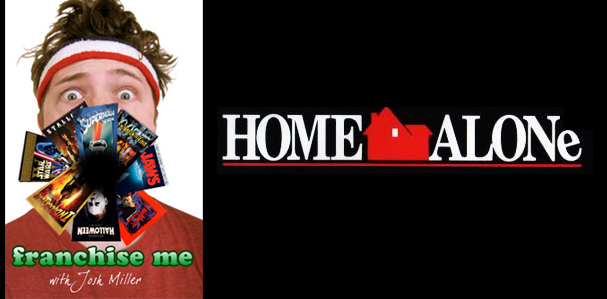
Hollywood loves a good franchise. The movie-going public does too. Horror, action, comedy, sci-fi, western, no genre is safe. And any film, no matter how seemingly stand-alone, conclusive, or inappropriate to sequel, could generate an expansive franchise. They are legion. We are surrounded. But a champion has risen from the rabble to defend us. Me. I have donned my sweats and taken up cinema’s gauntlet. Don’t try this at home. I am a professional.
Let’s be buddies on the Facebookz!
The Franchise: Home Alone — a “themed franchise” dealing with scenarios in which a small boy winds up alone in an adult world where he must fend for himself while also being pitted against the nefarious activities of adults. The franchise’s hallmarks are the clever ruses and cartoon violence that our lil’ hero uses against the adult antagonists. The series spans four films, from 1990 to 2002.
previous installments
Home Alone
Home Alone 2: Lost in New York
The Installment: Home Alone 3 (1997)
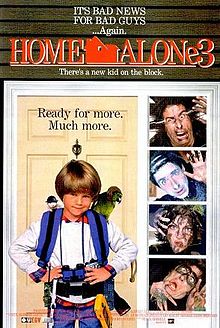
The Story:
It seems that after losing Kevin twice in two years, the McCallister clan finally got their shit together, or at least stopped taking big Xmas trips together. We’ve moved onto a new family: the Pruitts. Our new lil’ hero is Alex Pruitt (Alex D. Linz), who finds himself in danger when he is given a remote control car that just so happens to farcically contain a top secret microchip. Now four internationally wanted super criminals – Peter Beaupre (Aleksander Krupa), Alice Ribbons (Rya Kihlstedt), Burton Jernigan (Lenny Von Dohlen) and Earl Unger (Mr. Cyndi Lauper, David Thornton) – are casing his neighborhood, looking for the toy. Alex repeatedly tries to call the police, but gets accused of false alarms, annoying his boring family. So Alex decides it is up to him to take out the bad guys. Traps ensue.
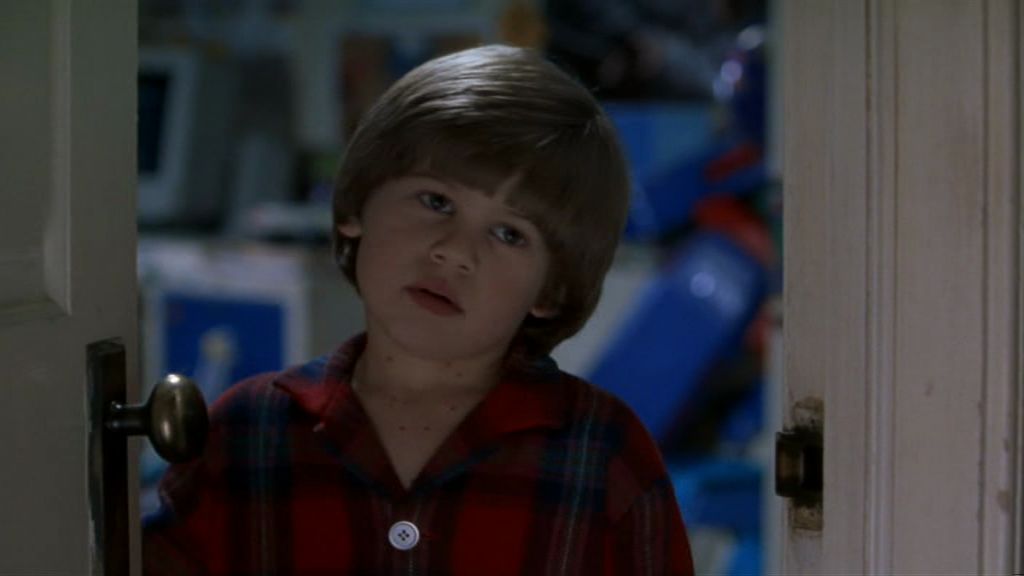
What Works:
Home Alone 3 is a cute and completely harmless kids’ film. Were it somehow able to exist in an alternate reality in which it was a stand-alone film, it might even have spawned its own modest kiddie franchise. It’s biggest problem is that it marks a major change-up and downgrade in the Home Alone franchise. John Hughes stuck around, but both Macaulay Culkin and Chris Columbus jumped ship for brighter shores after Home Alone 2. Our new director Raja Gosnell is something of a workman hack, but Columbus was too, so you can hardly tell the difference. The bigger and unmistakable change is the complete cast/character overall, particularly the absence of Kevin McCallister. It is always, always awkward to switch franchise “faces” mid-stream, especially if the new face is playing a whole different character. Fortunately Culkin wasn’t exactly the next Brando. Alex D. Linz is more inherently likable as a performer, so at least on that front we aren’t missing too much. Linz is one of the better virtues of the film. He’s fairly adorable. The whole film is kind of adorable. Which isn’t to say adorability is equatable to quality, but at least the film isn’t unpleasant to sit through.
In Screenwriting 101 terms, Home Alone 2 was a hot mess structurally, kept alive by momentum from the first film and the collective skills of the talented cast; plus Hughes ability to fake his way through the script. Home Alone 3 is surprisingly straight-forward in comparison. There are really no subplots to speak of, just the A-story about the criminals and the microchip. This makes the film feel slight compared with the first two installments, but for youngsters who just want to see adults get savaged by our precocious hero, the movie definitely cuts through all the bullshit and gets right to the point. In Home Alone the ultra-slapstick lasted for ten minutes. In Home Alone 2 twenty minutes. The entire second half of Home Alone 3 is made up of the home invasion battle. In a sense, Home Alone 3 is how many people falsely remember Home Alone.
I like that we now have a female villain to help spice things up. And some of the slapstick scenes are pretty good too. I particularly enjoyed the big remote control car set piece, in which Alex attaches a camcorder to the radio controlled truck to spy on the criminals while they’ve broken into a neighboring home (with Alex safely in his room). It is a fresh kind of bit that we didn’t see in the other films, and though the little truck does some truly preposterous things (like smashing through a wooden fence; huh?) that is the exact kind of shit little boys dream about when playing with remote controlled cars.
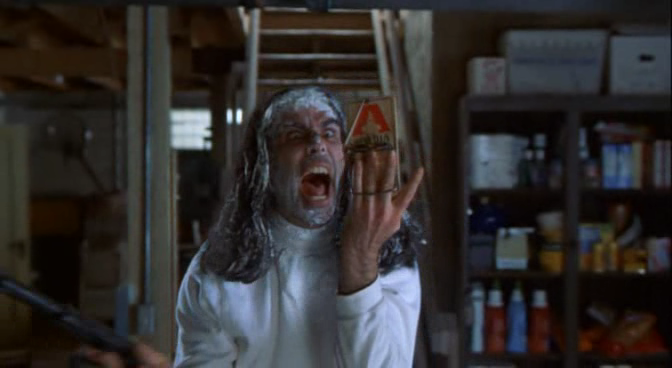
What Doesn’t Work:
It is actually a little surprising to see Hughes’ name in the producing and writing credits here, as this movie very much feels like an Elvis Has Left the Building sequel, like it was conceived by people who had nothing directly to do with the previous films and who did not entirely understand what made Home Alone (and even Home Alone 2) work for audiences. Most long-running franchises go down the rabbit hole of audience-narrowing eventually, appealing more and more so to the most fervent section of its fanbase. Oddly, only two sequels in, Hughes decided to hedge his bets and aim the film squarely and solely at little kids, despite the fact that the first film was a massive all-audience hit. Home Alone 3 is a pleasant, if fleeting, kids’ movie, but it is a rather pathetic shadow of a Home Alone movie.
Home Alone 3 almost feels like Hughes’ kneejerk reaction to realizing he shamelessly recycled every single bit from Home Alone into Home Alone 2, as he has now jettisoned the entire franchise formula, save for the child-on-adult ultra-slapstick. The story is set in motion again with a bit of airport farce – in which Alex’s neighbor, Mrs. Hess (Marian Seldes), accidentally grabs the villains’ bag as it comes out of the X-ray machine – but this has nothing to do with Alex and nothing to do with him getting separated from his family (and compared with the stellar bits of farce Hughes constructed for the first two films, the sequence is shamefully illogical and clunky). In fact, Alex isn’t left “home alone” until 60 minutes into the film. Alex gets chicken pox in Act I, which sets the film up as something of a kiddie Rear Window, with Alex bored in his bedroom watching his neighbors’ homes through his telescope. But Alex’s family is always around. His mother works mostly from home (based on the little that we see) and the “home alone” element only arrives as we’re moving into Act III, when Alex’s mother has to go to a business meeting — his father is already away for work, and his brother and sister are at school. There is absolutely nothing wrong with that in itself, but this approach completely abandons what I’d say was the key component of the franchise: a little kid fending for himself without parents. Alex does indeed need to fend for himself, especially after his attempts to warn the police give him a Boy Who Cried Wolf stigma, but this completely lacks the drama found in the set-ups of the first two films. Alex’s family is readily accessible to him for the vast majority of the film. Yet, dumbly, at the end of the film Hughes and Gosnell try to pretend as though Alex went through the same kind of separation that Kevin did. Alex’s mother, Karen (Haviland Morris), learns that Alex is in danger, and during the showdown between Alex and the criminals we repeatedly cut away to Karen and the Air Force rushing to save Alex and arrest the criminals. Of course Karen will be happy to find Alex safe, but the film plays their reunion as though they’d been separated for days… instead of mere hours. It just doesn’t have the same impact as Kevin’s reunions with his mother.
Also jettisoned is the wish element. Alex never wishes his family away. So they never go away. So he has no lesson to learn. So he has no arc to speak of. He already appreciated his family. And frankly, they already appreciated him. It is just unfortunate circumstance that they end up thinking he is a liar after he calls the police twice and no one believes him. Alex D. Linz may be more inherently likable than Culkin, but Kevin McCallister was a much more textured and interesting character then Alex Pruitt. Hughes never felt the need to set-up Kevin’s genius-level ability to build traps, and we never cared. Oddly enough, Alex is a better set up character, introduced as something of a little wiz-kid, but his dialogue can’t hold a candle to Kevin’s and he has no fourth-wall breaking asides to woo us in. Just goes to show you that “proper” writing isn’t actually as important as good writing, in the end.
If you weren’t convinced that Catherine O’Hara’s subplots in the first two films were integral to the films’ overall quality, just watch Home Alone 3 and you’ll come around fast. What made the first film an all-audience pleaser was that Kevin’s wish come true was also his parents nightmare come true. It was a dual storyline that was respectively relatable to both parents and kids. Karen Pruitt has no storyline. And no offense to Haviland Morris, but she is no Catherine O’Hara (though she is pointlessly a redhead too, for some reason). And Kevin Kilner is no John Heard. And Seth Smith is no Devin Ratray (who played Buzz). We do get a very young Scarlett Johansson as Alex’s sister, but she barely does anything, so it hardly matters. The McCallister clan was hilarious and their casting was impressive, which allowed us to actually distinguish between the characters, even though there were fourteen of them. We only have four other Pruitts, but they might as well be just one for how memorable they are. The frenzied sense of community present in the first two films is gone here, which renders all the family scenes very low energy. The Pruitts also have poor chemistry, both on the page and in casting. When Alex discovers he has chicken pox he screams from within the bathroom, which causes each of the other four characters to presume he caught “his thing” (ie his little kid dick) between the toilet lids — which is a very bizarre and kinda off-putting way to introduce us to the family. So Alex constantly slams the toilet lid on his dick, I guess? Awesome character detail.
If Hughes didn’t want to begin the film with Alex getting separating from his family, it seems like the story should have involved them more. That would have been a fresh take. There is a fun tease in the film, when Karen is getting ready to leave for work while Alex has been setting up his traps; Karen almost walks into one of Alex’s traps, but he safely stops her. The film could have used a dozen more such moments, making creative use of the fact that Alex isn’t home alone. Maybe both his siblings should have been involved in the final battle. Maybe Alex should have been a girl. The film does so much to make itself wildly different from the first two films in Act I and II that it is disappointing when it scrambles to position itself back in place for Act III. Boring. And speaking of switching things up, why are the Pruitts upper-middle class like the McCallisters? No one is trying to rob them. It has nothing to do with the film narratively or thematically. Apparently this is just how Hughes sees America. I think it would have been fun to see an entirely different kind of family. And an entirely different kind of setting. I realize the franchise is called Home Alone but does our hero always need to be defending a literal home? Bringing in international super criminals is already pretty goddamn silly, why not just go full Toy Soldiers and have Alex defending his school or something? I don’t think snow is an important part of the franchise either. Can we leave Chicago too?
It would have been redundant to pit Alex against common burglars again, but bringing in the element of a top secret microchip spins the franchise out into a different kind of high concept world than it was before. Home Alone‘s power was in its deceptive smallness. The criminal danger did not directly affect Kevin until near the end of the film; the story was about him living it up alone. Now our criminal storyline is so big and important that it consumes the entire film. There really isn’t any point in Alex having chicken pox. We should have had a section of the film where Alex is bored, home alone with the pox. We should have had relatable slice of life stuff, like having Alex take a bath in that weird medicine shit chicken pox suffers need to (or least they did when I was a kid). Maybe some subplots involving the neighbors (there is a vague Old Man Marley element with Mrs. Hess, but it is so minor is barely registers; also, Alex isn’t afraid of her, she’s the one that needs to learn to like Alex, not the other way around). By focusing so heavily and so immediately on the super criminals, Home Alone 3 wears out the storyline too quickly. Our foursome of criminals just aren’t interesting enough to sustain this much attention. They lack the chemistry of Harry and Marv and they have twice as much screen time as the Wet Bandits did in the first film.
This film is from 1997. So why does Nick Glennie-Smith’s score sound like it’s from the 80’s?
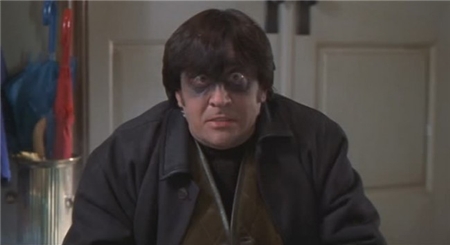
Home Alone Falls: 2
Moments Where A Villain Would Have Seriously Died: I feel fairly confident that if a running lawnmower actually ran over Jernigan’s head it would do slightly more damage than just fucking up his hair.
Injury That Is More Horrifying Than Funny: Maybe it is just me but electrocution gags are often more unpleasant than they are funny. Jernigan and Unger getting blasted for about a minute (with lightning bolts shooting out of Unger’s ass) is such an example.
Most Preposterous Ruse: Beaupre hears Alex’s parrot talking on speaker phone and not only thinks it is a person but a person who is there in the house? Not much of a criminal genius.
Best Kid Acting Like an Adult Moment: That’s not really Alex’s schtick. He’s just a kid.
Should There Be a Sequel: Nah. Let’s stop here.
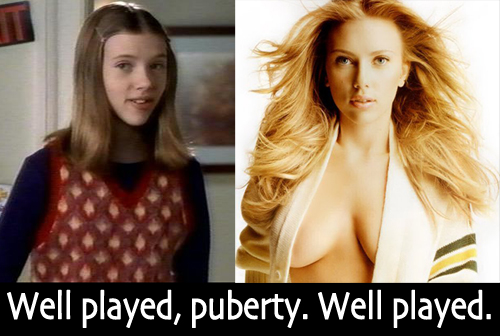
Up Next: Home Alone 4: Taking Back the House
DISCUSS THE FRANCHISE ON THE BOARDS
previous franchises battled
Critters
Death Wish
Hellraiser
Leprechaun
The Muppets
Phantasm
Planet of the Apes
Police Academy
Rambo
Tremors